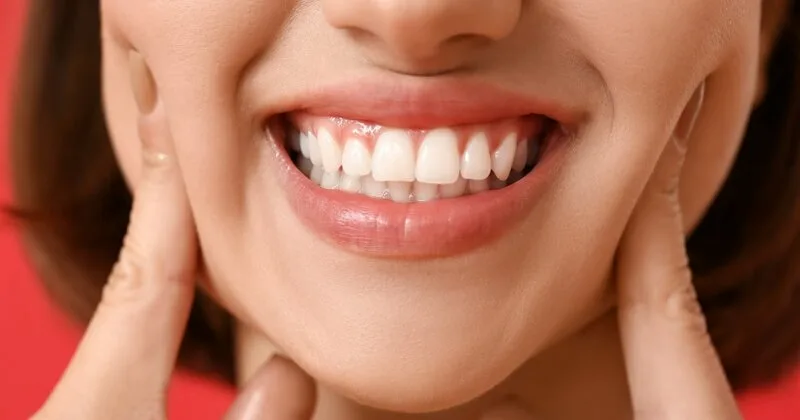
1. Brush your teeth properly: Brush your teeth at least twice a day for two minutes each time. Use a soft-bristle toothbrush and a fluoride toothpaste. Gently brush along the gumline in a circular motion to remove plaque and food particles.
2. Floss daily: Flossing is crucial for removing plaque and food debris from between your teeth and along the gumline. Be gentle while flossing to avoid injuring your gums. Consider using floss picks or interdental brushes if traditional floss is challenging to use.
3. Use an antibacterial mouthwash: Rinse with an antibacterial mouthwash after brushing and flossing to help kill bacteria and reduce plaque. Look for a mouthwash that specifically targets gum health.
4. Maintain a balanced diet: Eat a balanced diet that includes plenty of fruits and vegetables. Avoid excessive sugar consumption, as it can contribute to gum disease. A diet rich in vitamins and minerals supports gum health.
5. Quit smoking: Smoking is a significant risk factor for gum disease and can impair the healing process. Quitting smoking can improve your overall oral health, including your gums.
6. Limit alcohol consumption: Excessive alcohol consumption can increase the risk of gum disease. Limit your alcohol intake for better gum health.
7. Schedule regular dental check-ups: Visit your dentist for regular check-ups and professional cleanings. Dental professionals can identify early signs of gum disease and provide appropriate treatment.
8. Practice stress management: High levels of stress can weaken your immune system, making it harder for your body to fight off gum infections. Find healthy ways to manage stress, such as exercise, meditation, or engaging in hobbies.
9. Avoid clenching or grinding your teeth: Bruxism (teeth grinding) and excessive clenching can put stress on your gums and lead to gum recession. Speak to your dentist if you have these habits to explore treatment options.
10. Be aware of the signs of gum disease: Pay attention to symptoms such as red, swollen, or bleeding gums, persistent bad breath, receding gums, and loose teeth. If you notice any of these signs, seek dental care promptly.

Post Your Comments